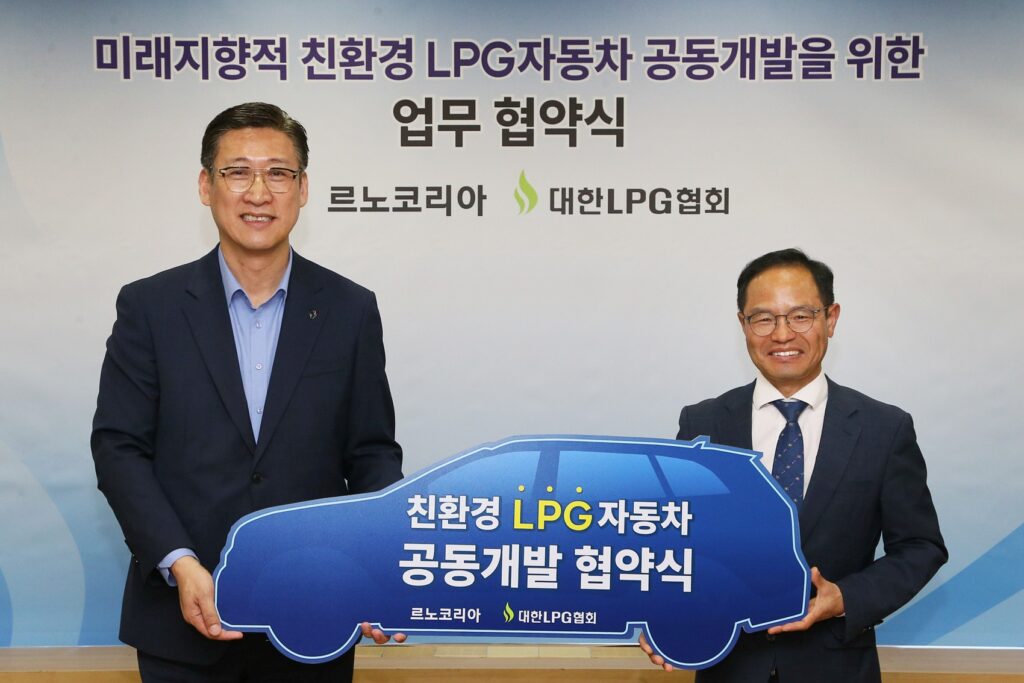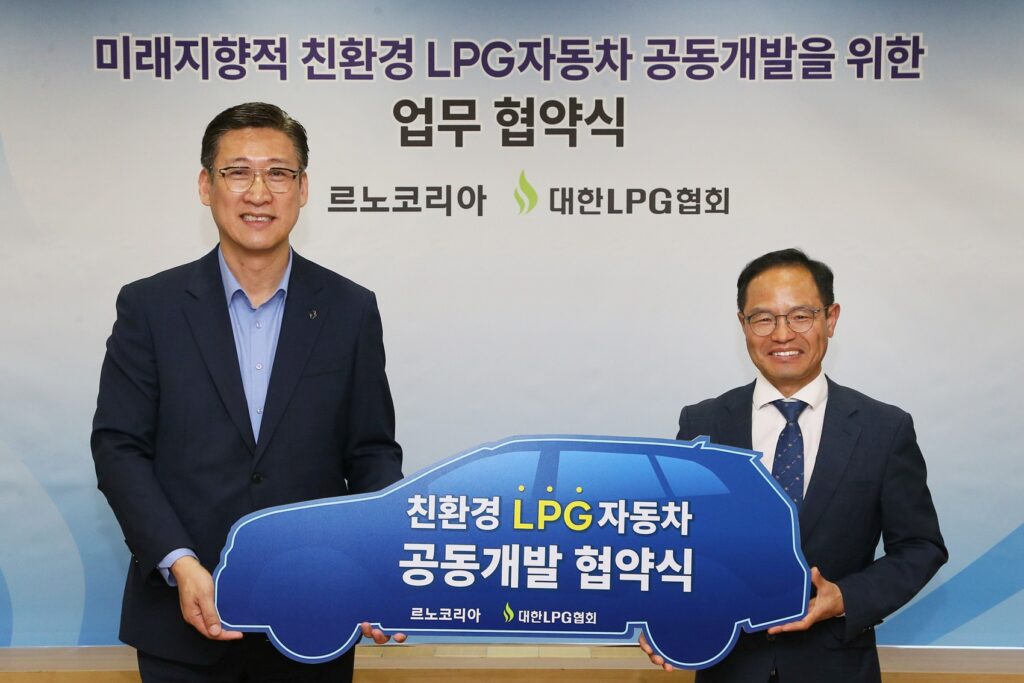
Renault Korea today signed a business agreement with the Korea LPG Association to jointly develop environmentally friendly LPG vehicles at Renault Technology Korea (formerly Renault Korea Central Research Centre) in Yongin, Gyeonggi Province. Under the agreement, the two companies will develop technologies for passenger vehicles with LPG direct injection engines.
Renault Korea and the Korea LPG Association will work together to apply direct injection technology to LPG passenger models to further enhance the eco-friendliness of LPG vehicles, which have a significant effect on reducing fine dust and greenhouse gases, and to create a foundation for expanding demand. They will also identify and actively promote policies and promotional projects for joint development.
The LPG Direct Injection (LPDi) engine is a fourth-generation system that enhances efficiency by injecting liquid LPG directly into the cylinder through a high-pressure fuel pump. It is considered to be a more environmentally friendly LPG engine because its increased power and torque can improve driving performance while significantly reducing harmful and greenhouse gas emissions. No LPG passenger vehicles with the new generation direct injection engine have been mass-produced in Korea.
The two companies will first build a prototype test vehicle this year to verify emissions, fuel efficiency, and engine durability before making a final decision on whether to begin mass production development.
In 2014, Renault Korea and the Korea LPG Association launched the SM5 LPLi, the first LPG donut tank in Korea, after more than two years of joint research. At the time, the LPG doughnut tank greatly increased the utilisation of trunk space, which was perceived as an inconvenience of conventional LPG vehicles, and received a lot of attention from consumers. Renault Korea followed up with the QM6 LPe in 2019, when regulations restricting the use of LPG vehicles were abolished, leading to the popularisation of LPG SUVs. The QM6 LPe features a patented mounting system to ensure passenger safety in the event of a rear-end collision.
Meanwhile, Renault Korea is considering launching a new trim for the SM6 LPe, which can also be used as a business car such as a taxi, to ease the difficulties of the taxi industry, which is facing a supply shortage due to the suspension of domestic production of LPG models for taxis.
Article roadtesting editorial (dhseo1208@gmail.com)
Photo Renault Korea Motors
